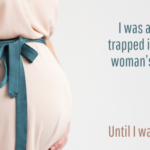The New Jersey state legislature is tackling medical debt in a new law that was signed last week and a separate bill that has been introduced in the state Assembly.
Last week, New Jersey Governor Phil Murphy signed Assembly Bill 2039, the “Out-of-Network Consumer Protection, Transparency, Cost Containment and Accountability Act” into law. The law will go into effect at the end of November.
Under the law, healthcare providers would be required to provide additional information to individuals in non-emergency situations about whether the services being provided are part of their insurance coverage or if the services are out-of-network. Healthcare providers would also be required to provide an estimate of fees upon request from patients. For emergency situations, the law restricts the amount that a healthcare provider may charge a patient for out-of-network services. The law also creates an arbitration process to resolve disputes between insurance carriers and healthcare facilities.
David Warshaw from the law firm of Pressler, Felt & Warshaw, will lead a presentation on the new law at the offices of Savit Collection Agency in East Brunswick, N.J., on Friday, Sept. 7 at 9:30am. If you are interested in attending this event, please contact Harry Ramos, vice president and director of compliance at Savit.
Separately, a pair of legislators from New Jersey have introduced another bill, Assembly Bill 4335, which would delay when medical debts could be placed with a collection agency, would require healthcare facilities to offer income-based repayment plans to patients before referring a debt to a collection agency, would wipe out debts in the event a patient dies or becomes permanently disabled, and defer any debts in the event a patient becomes temporarily disabled.
Debts would not be able to be placed with a collection agency until 90 days after a patient first receives a bill from a healthcare facility. Prior to being placed with collections, the facility must also offer the patient an income-based repayment plan, which would not exceed 15% of the patient’s discretionary income. As long as the patient is complying with the payment plan, the debt would not be allowed to be placed with a collection agency.
“This will be a win for concerned patients across New Jersey,” said Assemblywoman Joann Downey, [D-Monmouth], one of the bill’s sponsors, in a statement. “No longer will residents have to fear paying exorbitant medical bills in an expedited fashion. They will be able to make payments that make financial sense for them.”









